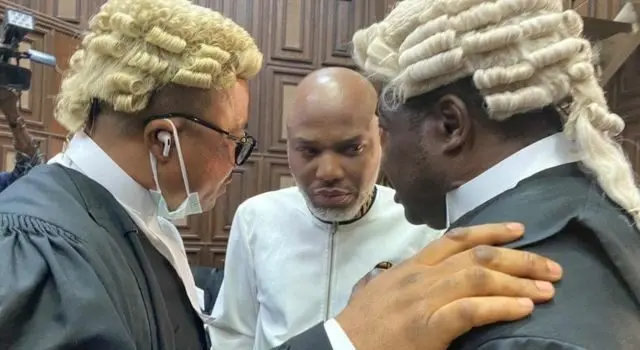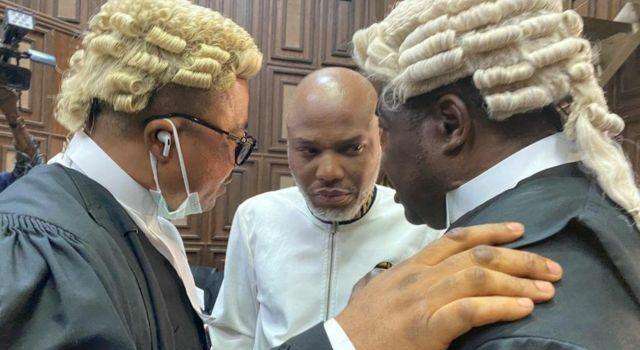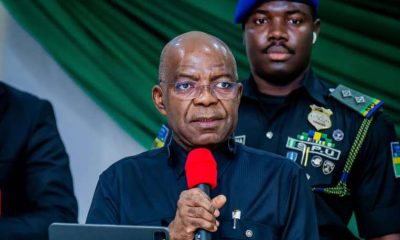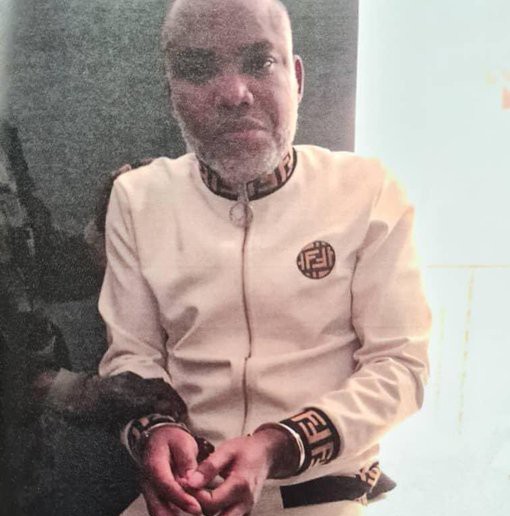Politics
BREAKING: Nnamdi Kanu Sentenced to Life Imprisonment After Terrorism Conviction

The Federal High Court in Abuja on Thursday sentenced Nnamdi Kanu, leader of the Indigenous People of Biafra (IPOB), to life imprisonment after convicting him on all seven terrorism charges brought by the Federal Government.
Delivering judgment, Justice James Omotosho held that the prosecution had proved beyond reasonable doubt that Kanu repeatedly issued incendiary broadcasts aimed at inciting attacks, killings, and unrest in furtherance of his separatist agenda. The court described the evidence as “uncontroverted and compelling,” noting that the defendant failed to dispute or counter any of the broadcasts attributed to him.
The judge criticised Kanu’s conduct in court, describing him as unremorseful and arrogant, but stated that the court would “show mercy” in sentencing. Justice Omotosho also ruled that Kanu should be held in protective custody in a facility deemed suitable for his safety, warning that Kuje Correctional Centre may not be appropriate due to past security breaches. He further restricted the convict from using electronic devices, except under supervision of the Department of State Services (DSS).
Earlier, the Federal Government had urged the court to impose the death penalty on Kanu, arguing that his incitement had led to the deaths of security personnel, destruction of property, and destabilisation across the South-East. Lead counsel, Adegboyega Awomolo, SAN, stated that counts 1, 2, 4, 5, and 6 of the charges attract the death sentence, count 3 carries a 20-year term, and count 7 a five-year term. He also requested the forfeiture of all seized broadcasting equipment and the prevention of Kanu’s access to the internet or digital gadgets.
The court session was briefly interrupted by Kanu’s objections, during which he refused to recognise the competence of the charges. He was subsequently removed from the courtroom for “unruly behaviour,” allowing the trial to continue in his absence.
The judgment concludes a decade-long legal battle that began in 2015, involving multiple appeals, adjournments, and interventions from human rights activists and political figures. Lawmakers and supporters had called for justice tempered with mercy, but the court affirmed the severity of the offences.
Thursday’s ruling marks a decisive moment in Nigeria’s efforts to curb separatist violence and insurgent activities in the South-East.







